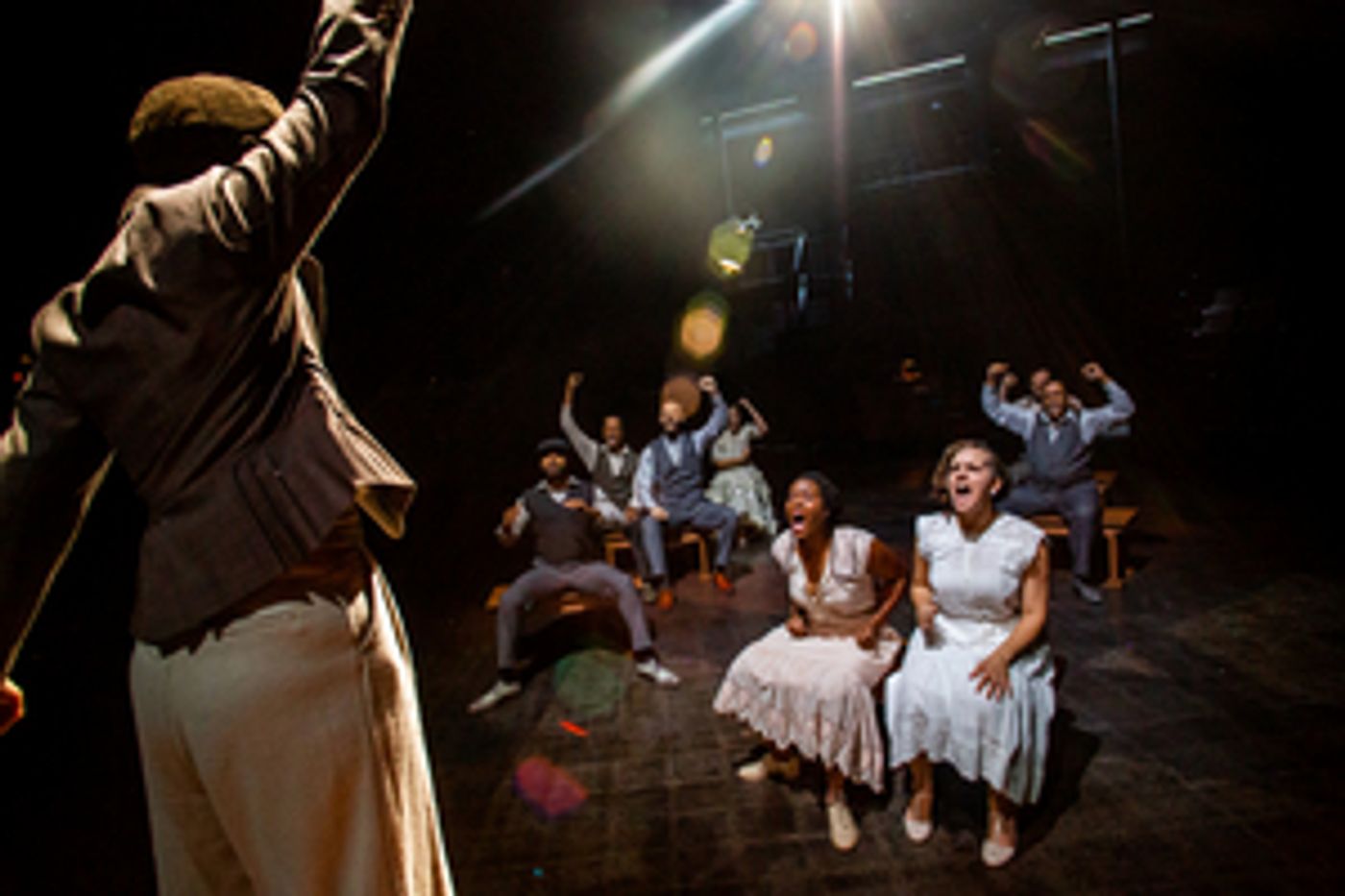Review: RAGTIME at Arden Theatre Company

Imagine a world where the rich get richer, there's a so-called "immigrant problem" and African Americans have to consistently fight to get the same opportunities as everyone else.
Doesn't sound so unimaginable? Ragtime at Arden Theatre Company explores these parallels between turn-of-the-century America and the world today. The show follows three families - white, upper middle class New Rochelle dwellers, African-American ragtime pianist Coalhouse Walker Jr. and his wife Sarah, and Latvian-Jewish immigrant Tateh and his daughter.
Each family faces their own struggles to define the American Dream. For Tateh, it's making enough money as an artist to support his young daughter. Coalhouse's American Dream is to be treated equally as a hardworking black man and stop discrimination against his race. The white, unnamed Mother has to come to terms with her privilege and figure out ways to escape her controlling husband and become an ally to the minority groups in the musical.
When Ragtime was first performed on Broadway, it featured a very large cast in period costumes. Each group was divided - white actors played white people and did not participate in other ensembles. But at The Arden, a cast of 19 plays varying roles and dresses in pseudo-Ragtime era clothing (designed by LeVonne Lindsay), more akin to what hipsters and bohemians of today would wear. This intentional intermingling of past and present makes the connection even more clear, and allows the audience to see themselves in these characters who are living more than 100 years ago.
The Arden's Ragtime also takes place in the round, so the audience surrounds the stage. Actors sit on benches inter-mixed with audience members. As tragic events play out in such close proximity to the audience, it plays a symbolic role: is this what happens when you're just a bystander? The white family's nameless characters largely choose not to sit on the sidelines, and end up minutely changing the depressing status quo for the better.
The set (designed by James Kronzer) is also extremely minimalist - just some stairs, benches and pianos. This forces the characters' stories to be the focus and makes the audience see just how relatable they are.
As always, the Arden's cast is spectacular. I often found myself getting goosebumps at the impeccable performance of harmonies written into the score. Nkrumah Gatling (Coalhouse Walker Jr.) is a standout voice with powerful vocal chops that makes it impossible not to listen to his characters' plight.
Ragtime also served as an opportunity for the young Colin Rivell to break onto the downtown Philadelphia theater scene as Mother's son, The Little Boy. The youthfulness and excitement he brings to the production reminds us that even in an extremely complicated, depressing world, future generations bring hope and new light to the world. He and his character make a statement that although things are not as bad as they were in 1910, we still need to teach our children to practice kindness in order to continue making change.
The Arden's Ragtime gives the show "a new syncopation," and relates it to social issues still happening today. This production is thoughtful, well done and extremely entertaining. It's no wonder the show already announced an extension.
Ragtime at the Arden runs until Oct. 10, and tickets can be purchased HERE.
Reader Reviews

Videos

